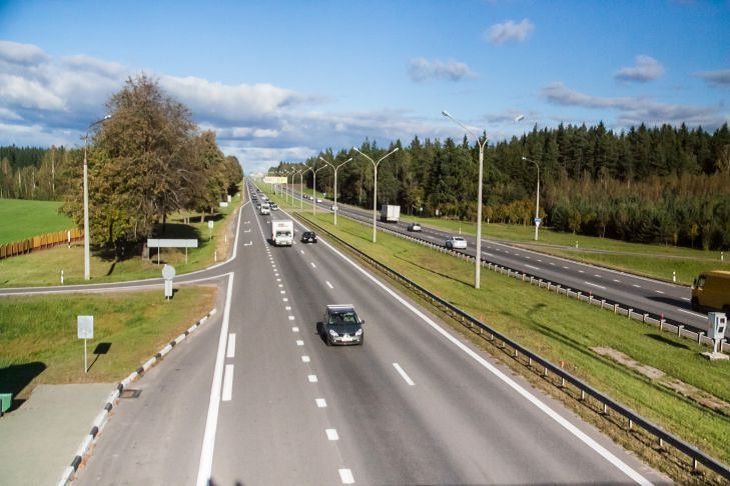Satellite towns of Minsk will be connected to the capital by concrete roads
It is planned to connect Minsk's satellite towns with the capital via cement concrete roads.
This was reported by the head of the department for the development of highways of the main department of highways of the Ministry of Transport, Leonid Zenkevich.
What the Ministry of Transport said about the construction of cement concrete roads to Minsk satellite cities
As a representative of the Ministry of Transport told BELTA in an interview, in the coming years the main exits from the capital within the second ring road are planned to be made of cement concrete.
This will allow Minsk to be linked with satellite cities through sustainable transport links, support their economies and reduce road repair costs.
Next year, major repairs will begin on the exit from the capital in the direction of Gomel and Mogilev (section of the M4 highway) with the installation of a cement-concrete pavement.

The new program “Roads of Belarus,” Zenkevich continued, will be aimed primarily at preserving the road network.
Separately, as the president instructed, roads that will have a cement concrete surface will be identified, the head of the department said.
Particular attention is also paid to converting gravel roads from district centres to agricultural towns into roads with improved surfaces.
Among the main reconstruction sites for 2021-24, Zenkevich named the section of the P53 highway (Sloboda - Novosady) to Smolevichi, the Pleshchenitsy bypass on the M3 highway, the bypass road near the urban settlement of Mir, and the bridge across the Western Dvina on the approach to Novopolotsk.
The section of the R53 highway from Smolevichi to Zhodino and the southwestern bypass of Mogilev with a bridge across the Dnieper have been put into operation, and work is being completed on the section of the M3 highway from Logoisk to Pleshchenitsy.
